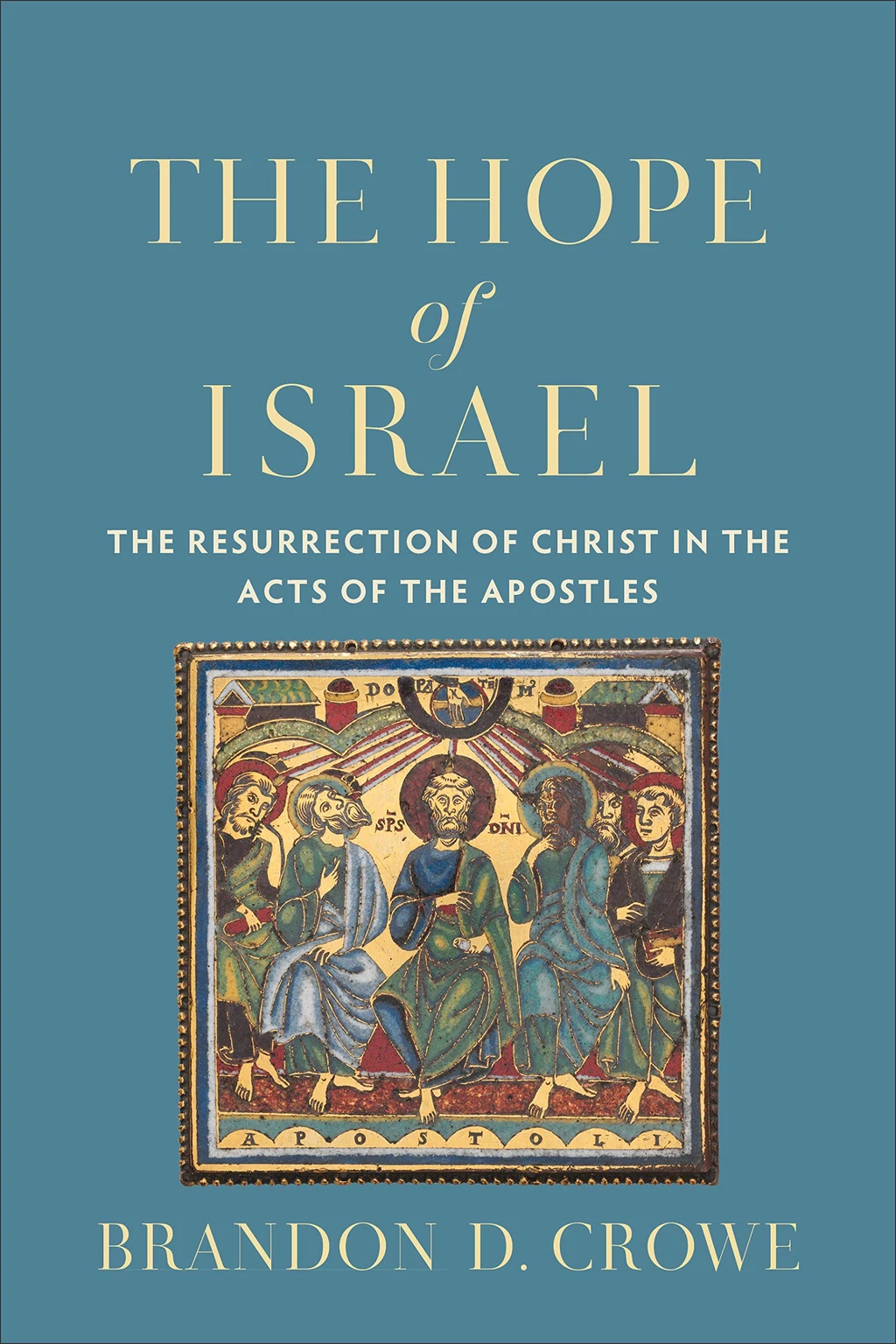
Brandon D. Crowe
Reviewed by: Mark A. Garcia
The Hope of Israel: The Resurrection of Christ in the Acts of the Apostles, by Brandon D. Crowe. Baker Academic, 2020. Paperback, 256 pages, $16.99 (Amazon). Reviewed by OP minister and professor Mark A. Garcia.
On the resurrection of Jesus Christ, the ages turn as on a hinge, and all of cosmic and human history is swept up and through the empty tomb. By way of the transition in history from cross to resurrection, all are either judged or delivered, caught in the train of Christ’s ascension in glory or condemned to perdition and utterly undone. Dr. Brandon Crowe’s book demonstrates this importance of the resurrection with verve, but extends it to matters of biblical interpretation as well. Focusing on Luke and Acts in particular, Dr. Crowe argues that the resurrection provides a guide to interpreting many other biblical texts and concerns, and reaches and spreads like tentacles through the vast body of Holy Scripture. This additional move is key to his argument, which he executes with care.
The first half of the book focuses on the apostolic teaching concerning the resurrection, including judicious studies of Peter and Paul as heralds of the resurrected One. Luke, the writer, grants us authoritative access to all three of the lions of the apostolic church—Peter, James, and Paul—so it is fitting to listen to Luke’s summaries of especially Peter’s and Paul’s apostolic teaching and note the special role the resurrection has for them both. In the second half of the book, Crowe outlines the place of the resurrection in relation to the accomplishment of redemption and then the application and experience of salvation. This includes a discussion of how the resurrection figures as an argument for Holy Scripture itself: Luke’s many references to the resurrection as “according to the Scriptures” reflect the definite pressure exerted upon Luke by the Old Testament itself in the direction of the resurrection. Even the genre of Acts, Crowe suggests, indicates that Luke sees himself as participating in Old Testament historiography.
In his final chapter, Crowe then explores plausible and important canonical implications of the centrality of Luke’s resurrection teaching. As he carefully explains, the placement of Acts in the New Testament manuscript tradition is not stable or fixed. Crowe argues, with good reason, that this variety suggests that Acts performs a flexible role in the New Testament canon, uniting it theologically to all other New Testament literary groups and effecting a unity among them: the Gospels, the Catholic Epistles, the Pauline Letter Collection, and Revelation. He further argues that the resurrection is the key thematic ligament holding these corpora together. Seeing the resurrection as central to apostolic teaching in Acts, and Acts as the intended and proper context for reading the epistles, Crowe concludes that the resurrection thus provides “part of the necessary framework for interpreting all the New Testament epistles” (189).
Dr. Crowe is professor of New Testament at Westminster Theological Seminary, at which institution Dr. Richard B. Gaffin Jr. famously taught and wrote on the resurrection of Christ in Paul’s theology to great effect. Dr. Crowe thus continues that tradition, but extends and develops it in ways that are both appropriate and promising of yet further advancement. There is a tendency to read the New Testament writings as vehicles of theological truth that is somehow detached from the form and shape of the vehicle itself. The canonical shaping of the New Testament is a key part of any serious exploration of its teaching, however, and requires our attention, if for no other reason than that we take the doctrines of providence and of the church (as an interpretive community) seriously. I commend Dr. Crowe’s study, then, not only as edifying reading—which it certainly is—but as a proposal worthy of careful consideration in thinking through the providential ordering of the New Testament.
Editor’s Note: This review was written when Dr. Garcia was serving as pastor of Immanuel in Coraopolis, PA. He has now been appointed Associate Professor of Systematic Theology at Westminster Theological Seminary.
April 27, 2025
The Devoted Mind: Seeking God’s Face in a World of Distraction
April 20, 2025
April 13, 2025
Suffering: God’s Purpose in Our Pain
April 06, 2025
Sunday Matters: 52 Devotionals to Prepare Your Heart for Church
March 30, 2025
On the Trail with a Missionary
March 23, 2025
Midnight Mercies: Walking with God Through Depression in Motherhood
March 16, 2025
© 2025 The Orthodox Presbyterian Church